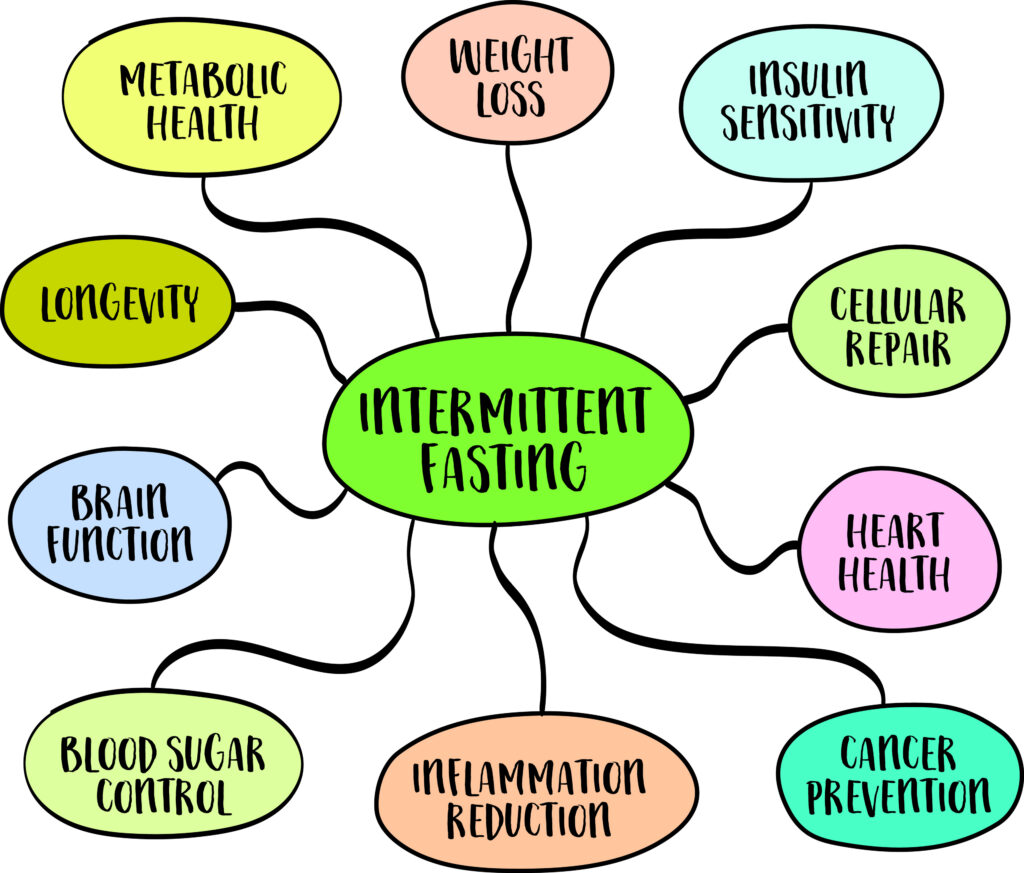Fasting, the voluntary abstention from eating for a period, has been practiced for millennia, often for religious or spiritual reasons. Today, it is increasingly embraced for its potential health benefits, which range from weight loss to enhanced brain function. However, as fasting gains popularity, it also faces skepticism and criticism. This blog provides a deep dive into the complex world of fasting, examining the science behind it, its potential health benefits, and the reasons some experts remain cautious.
Understanding Fasting and Autophagy
What is Fasting?
Fasting involves choosing to abstain from food for various periods, from several hours to several days. Common methods include intermittent fasting (IF), time-restricted feeding (TRF), and prolonged fasting (PF). Each method has its protocol and potential benefits.
Autophagy: The Science of Self-Eating
A significant aspect of fasting is autophagy, a process that Nobel laureate Yoshinori Ohsumi extensively studied. Autophagy, which means “self-eating,” is the body’s way of cleaning out damaged cells and regenerating newer, healthier cells. This process is crucial for cellular health and longevity. During periods of fasting, autophagy rates are believed to increase, thereby promoting better cellular maintenance and function.
Potential Health Benefits of Fasting

Weight Loss and Metabolic Health
Dr. Jason Fung, a leading proponent of fasting, argues that it is a potent tool for weight loss and diabetes management. Fasting decreases insulin levels, which facilitates fat burning and reduces inflammation. Studies suggest that intermittent fasting can lead to significant weight loss and improve metabolic markers such as blood sugar and cholesterol levels.
Improved Brain Function
Research indicates that fasting can have neuro-protective effects, possibly improving brain function and increasing resistance to neurodegenerative diseases. This is thought to be linked to reduced oxidative stress and improved metabolic efficiency during fasting.
Longevity and Cancer Prevention
Some animal studies suggest that fasting can extend lifespan and reduce the risk of diseases, including cancer. The theory is that by enhancing autophagy, fasting helps remove potential cancer-causing cells and reduces inflammation, a key driver of many chronic diseases.
Criticisms and Concerns
Nutritional Deficiencies
Critics of fasting, including some nutritionists and health professionals, point out that improper fasting can lead to severe nutritional deficiencies. They argue that fasting, especially over extended periods, might deprive the body of essential nutrients needed for optimal function.
Potential for Eating Disorders
There is concern that fasting might trigger or exacerbate eating disorders, especially in individuals with a history of disordered eating. The restrictive nature of fasting can sometimes lead to an unhealthy obsession with food and body weight.
Deep Dive into Fasting: Tailored Insights for Women Over 40
Fasting has gained attention not only as a weight management tool but also for its deeper health benefits, particularly among women over 40. This demographic often experiences unique health challenges, and fasting might offer promising solutions.
Hormonal Balance and Menopause
For women over 40, the concern is less about fertility and more about managing the hormonal changes that accompany perimenopause and menopause. Fluctuations in estrogen and progesterone can lead to weight gain, increased risk of osteoporosis, and cardiovascular disease. Fasting, particularly intermittent fasting, has been shown to help manage these hormonal fluctuations by improving insulin sensitivity and decreasing inflammation. However, it’s crucial for women in this age group to approach fasting with caution as drastic hormonal shifts can exacerbate symptoms like hot flashes and night sweats.
Bone Health
Another significant concern for women over 40 is bone density. Studies suggest that extended periods (24 hours or more) regularly over weeks or months of fasting could potentially affect bone health negatively due to decreased nutrient intake, particularly calcium and vitamin D. Women considering fasting regimes should ensure adequate nutrient intake during eating periods and possibly supplement to maintain bone health.
Metabolic Health
As metabolism naturally slows with age, maintaining a healthy weight can become increasingly challenging. Fasting can aid in weight management by enhancing hormonal balance and improving metabolic efficiency. The improved insulin sensitivity associated with fasting is particularly beneficial for women over 40, who are at a higher risk of developing type 2 diabetes.
Choosing the Right Fasting Window
Understanding different fasting windows and their specific benefits is crucial for making informed decisions that align with personal health goals and lifestyles.
Intermittent Fasting (16/8 Method)
This method involves fasting for 16 hours and eating during an 8-hour window. It’s particularly suited for those new to fasting or those who want a less disruptive approach to integrate into daily life. The 16/8 method can help manage blood sugar levels and reduce overall calorie intake without significant lifestyle changes.
Eat-Stop-Eat (24-hour fast, 1-2 times a week)
This approach may be beneficial for those looking to achieve deeper detoxification and regeneration effects that require longer fasting periods. However, because it involves complete abstinence from food for 24 hours, it requires a more considerable commitment and can be more challenging to maintain regularly.
The 5:2 Diet
In this flexible approach, women consume a normal diet five days a week and reduce calorie intake on the other two days to about 500-600 calories. This method allows for more manageable dietary restrictions and can be an excellent way to ease into fasting without significant disruptions to daily routines.
The 48-Hour Fast
Extending the fast to 48 hours increases the intensity, potentially offering greater benefits like improved insulin sensitivity and a deeper cleanse for your body.
The 72-Hour Fast
This extended fast goes further, potentially kick-starting immune system renewal and significant cellular repair.
While prolonged fasts can maximize autophagy and other cellular benefits, they are typically recommended for those who are experienced fasters and under medical supervision, especially for women over 40 due to their intense nature and higher demands on the body’s resilience.
Balancing Views: Health Benefits and Skeptic Perspectives
While the benefits of fasting can be substantial, addressing concerns is crucial. Skeptics worry about the long-term effects of regular fasting, such as potential nutrient deficiencies and the risk of disordered eating patterns. These concerns are particularly relevant for prolonged fasting periods, which might not be suitable for everyone.
Exploring Additional Fasting Techniques
Fat Fasting, Protein Sparing Modified Fast, and Using Bone/Beef Broth
For women over 40 considering or already practicing fasting, exploring various methods can help tailor the experience to meet specific health goals and nutritional needs. In addition to traditional fasting methods, techniques such as fat fasting, protein sparing modified fast (PSMF), and incorporating bone or beef broth can offer unique benefits and help manage potential challenges like electrolyte balance.
Fat Fasting
Fat fasting is a method where the majority of calories come from fats, while keeping overall calorie intake low (typically around 1,000-1,200 calories per day). This approach is usually followed for a short duration, such as 2-5 days. It’s particularly useful for those who want to break through a weight loss plateau or induce ketosis quickly. In a fat fast, about 80-90% of total calories come from fats—think butter, cheese, egg yolks, and MCT oil. Despite its name, this technique isn’t about fasting from fat, but rather, fasting with fat. For women over 40, this can be a gentler alternative to full fasting, providing more satiety and fewer disruptions to daily energy levels
Protein Sparing Modified Fast (PSMF)
A PSMF is an advanced fasting method designed to minimize the loss of muscle mass while maximizing fat loss. This approach involves consuming a very low-calorie diet, but with a high proportion of protein—typically around 800 calories per day, with 70-80% coming from protein. Lean meats, poultry, and fish are staples in this diet. It’s important to note that PSMF should be done under medical supervision, particularly for women over 40, to ensure it does not exacerbate any potential health issues like hormonal imbalances or bone density loss
Incorporating Bone/Beef Broth
Using bone or beef broth during fasting periods can be incredibly beneficial, especially for maintaining electrolyte balance and mitigating some of the common side effects of fasting, such as fatigue and dizziness. Bone broth is rich in minerals like magnesium, potassium, and calcium, which are vital for electrolyte balance and overall health. It also provides collagen and other compounds beneficial for joint and gut health. Incorporating bone broth into fasting periods can make the process more sustainable and comfortable, providing essential nutrients without breaking the fast.
Tailoring Fasting to Your Needs
When considering these fasting techniques, it’s essential to tailor them to your individual health needs and lifestyle. Each method offers different benefits and can be adapted to help you reach your specific health goals. Fat fasting and PSMF, for example, might be more appealing if you’re looking to lose weight quickly, while using bone or beef broth during more extended fasting periods can help sustain your fasting efforts without major discomfort.
Another Option to Consider: The Egg Fast Method
The Egg Fast is a unique method that offers an intriguing blend of simplicity and effectiveness, particularly for those looking to break through a weight loss plateau or reset their metabolism. This section dives into what the Egg Fast entails, its potential benefits, and considerations specifically tailored for women in this age group.
What is an Egg Fast?
The Egg Fast is a short-term diet primarily focused on consuming eggs, healthy fats, and cheese. Originally popularized by the keto community as a way to kickstart or return to ketosis, this method restricts food intake to just a few specific types, primarily:
- Eggs: The central component of the diet, consumed at every meal.
- Healthy Fats: Each egg consumed is usually accompanied by a tablespoon of a healthy fat such as butter or coconut oil.
- Cheese: Up to one ounce of cheese per egg is allowed.
Typically, the Egg Fast lasts between three to five days, making it a method of fasting that emphasizes both simplicity and high nutrient intake.
Potential Benefits of the Egg Fast
1. Enhanced Ketosis: For those following a low-carb or ketogenic diet, the Egg Fast can help induce or deepen ketosis, the state where the body burns fat for fuel instead of carbohydrates.
2. Weight Loss: By simplifying diet choices and reducing calorie intake, the Egg Fast can lead to rapid weight loss, though this is often primarily water weight, especially in the short term.
3. Metabolic Reset: The high intake of protein and fats can help stabilize blood sugar levels, potentially reducing cravings and improving insulin sensitivity.
Final Thoughts: Fasting and the Carnivore Diet for Women Over 40
For women over 40 who are already following a carnivore diet, the question often arises: Is fasting necessary? The carnivore diet, by its nature, already simplifies eating patterns and reduces carbohydrate intake to virtually zero, which can mimic some of the metabolic benefits typically associated with fasting.
Synergies Between Carnivore Diet and Fasting
The carnivore diet naturally promotes a form of fasting by eliminating most carbohydrates and focusing on high-protein, high-fat foods, which generally lead to greater satiety and a reduced frequency of meals. Many adherents find themselves naturally adopting a form of intermittent fasting, as they eat less often due to increased fullness from protein and fats.
Is Fasting Necessary?
Given the metabolic state that the carnivore diet promotes—often leading to ketosis, similar to what occurs during fasting—the necessity of integrating traditional fasting methods is not clear-cut. For many women over 40 on a carnivore diet, the benefits of fasting like improved insulin sensitivity and reduced inflammation might already be achieved through the diet alone.
Considerations for Fasting While on Carnivore Diet
However, for those looking to enhance the benefits of the carnivore diet or target specific health goals such as autophagy or deeper metabolic shifts, incorporating structured fasting may provide additional benefits. It’s important to approach this combination with caution, considering the intense nature of both the diet and fasting practices. Monitoring your body’s response and consulting with health professionals can ensure that any integration of fasting into a carnivore diet is done safely and effectively.
Making an Informed Decision
Ultimately, whether to incorporate fasting into a carnivore diet is a personal decision that should be influenced by individual health goals, responses to the diet, and medical advice. For women over 40, it is particularly crucial to consider the long-term impacts on bone health, hormonal balance, and overall nutritional adequacy.
For those already finding success with the carnivore diet, adding fasting might not be necessary. Yet, for others seeking to maximize specific health outcomes, experimenting with fasting could offer additional insights and benefits. Like any dietary or health regimen, the key is personalization, careful monitoring, and ongoing adjustment to fit your unique health needs.
Conclusion
Fasting is a versatile tool that can be adapted in various ways to fit the nutritional needs and health goals of women over 40. Whether you’re exploring fat fasting to induce ketosis, trying a protein sparing modified fast to protect muscle mass during weight loss, or incorporating bone broth to ensure nutrient intake and maintain electrolyte balance, each method can be a valuable addition to your health regimen. As with any dietary approach, consult with a healthcare provider to ensure that these fasting techniques are appropriate for your specific health conditions and nutritional needs. By carefully choosing and tailoring fasting methods, you can maximize the health benefits while minimizing potential risks, making fasting a powerful ally in your wellness journey.





